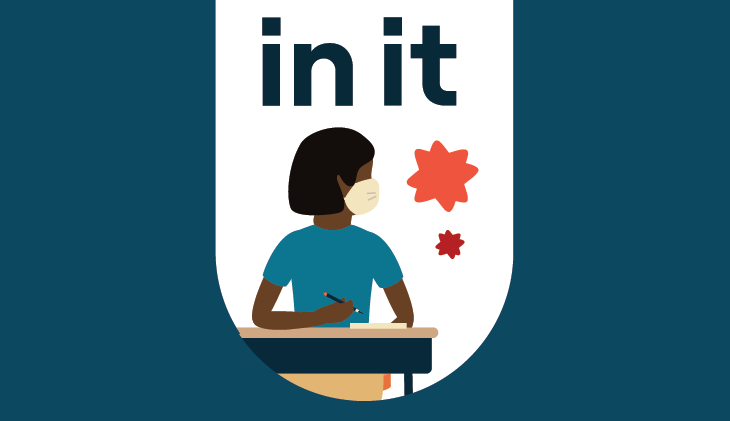Stay in the know
All our latest podcasts delivered right to your inbox.
Living in a pandemic is hard. With the latest surge in COVID-19 cases, it feels even harder — and not just for parents of kids who learn differently.
In this episode, hosts Amanda Morin and Gretchen Vierstra invite you to join them in a collective scream about Omicron, school, and parenting. Listen as they ask themselves how to start off — and make it through — yet another year in a pandemic. While they don’t have answers, they hope you find comfort in knowing you’re not in this alone.
Related resources
Episode transcript
Amanda: Hi, I'm Amanda Morin.
Gretchen: I'm Gretchen Vierstra, and this is "In It." Today we are actually breaking form to do something a little different.
Amanda: We would love to invite all of you to join us — vicariously, anyway — in a giant collective groan or scream, whichever you prefer.
Gretchen: Oh, God, living through a pandemic is so hard. And we all already know that. We've been doing it now for about two years.
Amanda: But this latest wave is bringing up such new challenges, especially for anyone who cares about kids who learn differently, who has kids who learn differently, who teaches kids who learn differently, who knows kids who learn differently.
Gretchen: Exactly. So let's start local then. Amanda, how are things for you and your family in Maine?
Amanda: I mean, the good news is we're all healthy right now, right? And so, you know, we went through our bout of COVID. Maine's hit pretty tough right now, though. Our hospitalizations are up high. People are getting COVID, and it means that schools are rethinking how they deliver services, whether they're going to be online or whether they're going to be in person, whether they do pool testing, how do they do social distancing. And you know, I have a sixth grader. We ended up getting COVID in October before he was able to be vaccinated. And he was afraid to go back to school yesterday because he didn't want to bring it home again, and I felt terrible.
Gretchen: How did you handle that? How did you help him go to school?
Amanda: I just, you know, put his boots on and said "Go.” No, I'm just kidding. I mean, the best I could do was say, "It wasn't your fault, you know? Like, none of this is your fault." And I think for so many kids like mine who have, you know, anxiety or worry about things or think deeply about things, I think they don't understand what's within their control and what's not within their control. How's it going there? I mean, what's it like in the Bay Area for you right now?
Gretchen: California feels OK so far. I don't know, maybe I'm just oblivious to the news. But I would say that for us, the main thing was anxiety over "Oh my goodness, does this mean Zoom school again?" Because I also, as you know, have a middle-schooler. So she started her sixth-grade year on Zoom, right? So this is the first year in an actual building as a seventh grader. And that was the first thing. "Oh no, please. No. No online school. I can't do it again. I can't do it again."
Amanda: You know, it's interesting. I'm going to actually see if our producer, Julie, would hop in. Because she's in a totally different state. You know, you're in California, I'm in Maine. Julie, you're in New York. Yes?
Julie: Yeah, I'm in New York. I also have a middle-schooler. She goes to a huge school. And her first day back, she found that out of 29 kids in her class, 19 came to school. And we don't know if kids were staying home because they were sick or because they were just fearful. There's just a constant question. You know, is it right to send your kid into a school, which realistically I don't think can fully ventilate, where they — I don't believe are actually doing any testing? So it's hard.
Gretchen: I mean, let's face it, middle school is hard enough as it is. Then on top of it, you're adding a pandemic. And then on top of that, you're adding maybe missing out on services that you can't get provided if the school's not able to fully, you know, run up to function or whatnot.
Amanda: And on top of that, you're adding the "Well, if I test positive, did I get that from one of my friends? Did I give that to one of my friends?" Like, I think there's all this stuff tied into it.
Gretchen: So then I think, too, you know, with all of this with having to maybe up your mask game, right, to a mask you don't want to wear, and maybe having the pool test when you don't really want to do that. There's probably kids right now out there who are saying, "I don't want to go into a physical school building anymore." And I know that we have an upcoming episode actually of "In It," where we talked to two parents of a child who during the start of COVID did not want to go to school. And for parents like that, this might be a time where that comes to fruition again, where kids don't want to go to school. And what are they to do?
Amanda: I know, right? And it's so funny because when we recorded that episode with that family, we didn't anticipate that it might be something that would come up again. So I've been thinking about them actually and wondering how their son is doing, going back to school again during what seems to be another wave of the pandemic. For me, what I found is the best we can do is acknowledge that this is unusual. Not something we ever expected, that it has gone on for a really, really, really long time. I mean, I think this is the time where my skills as a mother feel most tried. I don't know about you. But yes, I'm frazzled. I'm exhausted. I'm trying to keep up with the latest and I don't — I don't always know how to say I'm confident because I don't feel confident as a mom right now.
Gretchen: This is such a hard time for families and such a hard time for teachers yet again. And so I think about that side of it too, right? Like, we're stressed, our kids are stressed, and then there's teachers who maybe a lot of their colleagues are out sick.
Amanda: Well, I don't know about you. I've also heard from some of my teacher friends that they've had colleagues decide to not teach anymore, which, yeah, I can understand. And also, I think it's such a loss. I think it's a loss for our students, especially in special education or students who had found their person.
Gretchen: I think you brought up a really good point. And I'm thinking back to our conversation with Kareem Neal about learning loss and how connections with teachers and staff is so important. And sometimes maybe it's not going to be the teacher that your child currently has. And so this might be the time we have to start thinking outside the box. Who can, you know, our kids go to for connections at school? If, you know, our kid's teacher's out sick or — I mean, who knows what's going on? You know, I just don't know. But it's just time to remember that the school is a huge community and there are connections to be made outside of just your child's teacher.
Amanda: Yeah, one of the things that online learning did was sort of broke down some of those walls, right? Everybody had their Google classroom or their Zoom classroom or whatever classroom, and kids had their teachers' email addresses and those kinds of things too. I think it's probably worth remembering that the teacher your child connected with last year is probably somebody they could get in touch with again if they needed to. You know, and for me, I'm really hoping that we can figure out ways to keep schools open that are safe. Because I think you're absolutely right about keeping those connections. And not just for the kids, for the teachers, too. I want to be able to have people be safe and together, you know?
Gretchen: Yeah, I mean, because we all know that the isolation of the pandemic has been hard on our kids.
Amanda: Yeah. Gretchen, what's your word of advice to the parents like us out there?
Gretchen: Oh, I, you know, I'm a planner. I love to plan ahead. I always like to think way ahead and I have had to adjust. And I think that's one word of advice is just we can't plan, you know, out way in the future. In times like this, we plan day by day. And we just — I personally have to figure out how to live with that. And that's hard for me. But I'm trying and I'm breathing and — what about you, Amanda?
Amanda: I'm not good at that, either, so I will take that advice if I can. But I think for me, it's about remembering what I can control and what I can't control, and teaching that to my kids, too — that some of this is just not in my control. And that we're all going through this, right? So I don't know if that's advice necessarily, but it's a reminder: We're all going through this in one way or another. So when it feels really isolating, at least we're all feeling isolated together. I'm going to put our producer, Julie, on the spot again and see if she has any wisdom.
Julie: Oh, I'm going to cut all of this. I think one thing I'm just thinking is that one size doesn't fit all, and I think I see a lot of arguments between people who are like, "How can schools not be open?!" versus "How can schools be open?!" And they're mad at teachers and they're mad at their department of education, they're mad at other parents. And I just think that the solution that works for one person doesn't necessarily work for another one, and that we just have to know that we all want the best for our kids and hopefully for our teachers and for our school systems. And that if we could all step back and just recognize those differences. They don't have to be political differences. They don't — they're not even scientific differences. They're just we have different needs. Yeah, but also I'm just thinking, you know, the temptation if you don't send your kids to school is just to kind of disappear, I think. And I'm thinking it could be really important for kids or parents to reach out to teachers and say, "Hey, this is what we're thinking. This is why we're not there right now. We'd like to be or we hope to be." Because I just — I think we are all sort of folding in on ourselves and feeling isolated. It could still be a conversation.
Gretchen: Everyone's situation is different, right? For some people, going to school is a necessity because it's going to enable you to work. For others, sending the child to school — you fear they might get sick, which will not enable you to work because now you can't work because you are sick. Or your caretaker, you know, for your child, is someone older and you're afraid of getting them sick. So now you're not using that caretaker anymore. And so now how are you working? Even if you are working from home, there could be a toddler running around you again with, you know, nothing but "Sesame Street."
Amanda: And maybe that's part of it too, right? Like, maybe there's a component of this where we have to remember to give everybody grace. The rules just change, and assuming that everybody's making their decisions based on the same criteria, it's just — it's not reasonable to think that. I'm not even sure I make my decisions on the same criteria day by day, to be honest.
Gretchen: I know, and sometimes I question all of my decisions, you know?
Amanda: Just know, we're always in it with you. And this is what we wanted to say to you today. We're feeling the same things and dealing with the same things and making the tough decisions, and we kind of want to know how you're doing, too, right now. So email us if you have a chance. You can email us at init@understood.org. You can leave us a message at 646-616-1213, extension 703. That's a whole lot of numbers. Let me give you that again. It's 646-616-1213, extension 703. We want to know how you're doing. So, you know, we might share it on a future episode, or we might just play it over and over again for Gretchen and I to feel better and know that you are in it with us.
Gretchen: Exactly.
Amanda: You've been listening to "In It," part of the Understood Podcast Network.
Gretchen: You can listen and subscribe to "In It" wherever you get your podcasts.
Amanda: And if you like what you heard today, please tell somebody about it.
Gretchen: Share it with the parents you know.
Amanda: Share with somebody else who might have a child who learns differently.
Gretchen: Or just send a link to your child's teacher.
Amanda: "In It" is for you. So we want to make sure that you're getting what you need.
Gretchen: Go to u.org/init to find resources from every episode.
Amanda: That's the letter U, as in Understood, dot O R G slash in it.
Gretchen: As a nonprofit and social impact organization, Understood relies on the help of listeners like you to create podcasts like this one to reach and support more people in more places. We have an ambitious mission to shape the world for difference. And we welcome you to join us in achieving our goals. Learn more at understood.org/mission.
Amanda: "In It" is produced by Julie Subrin. Justin D. Wright mixes the show. Mike Errico wrote our theme music. Laura Key is our editorial director at Understood. Scott Cocchiere is our creative director, and Seth Melnick and Briana Berry are production directors. Thanks for listening, everyone. And thanks for always being in it with us.
Hosts

Gretchen Vierstra, MA
is the managing editor at Understood and co-host of the “In It” podcast. She’s a former educator with experience teaching and designing programs in schools, organizations, and online learning spaces.
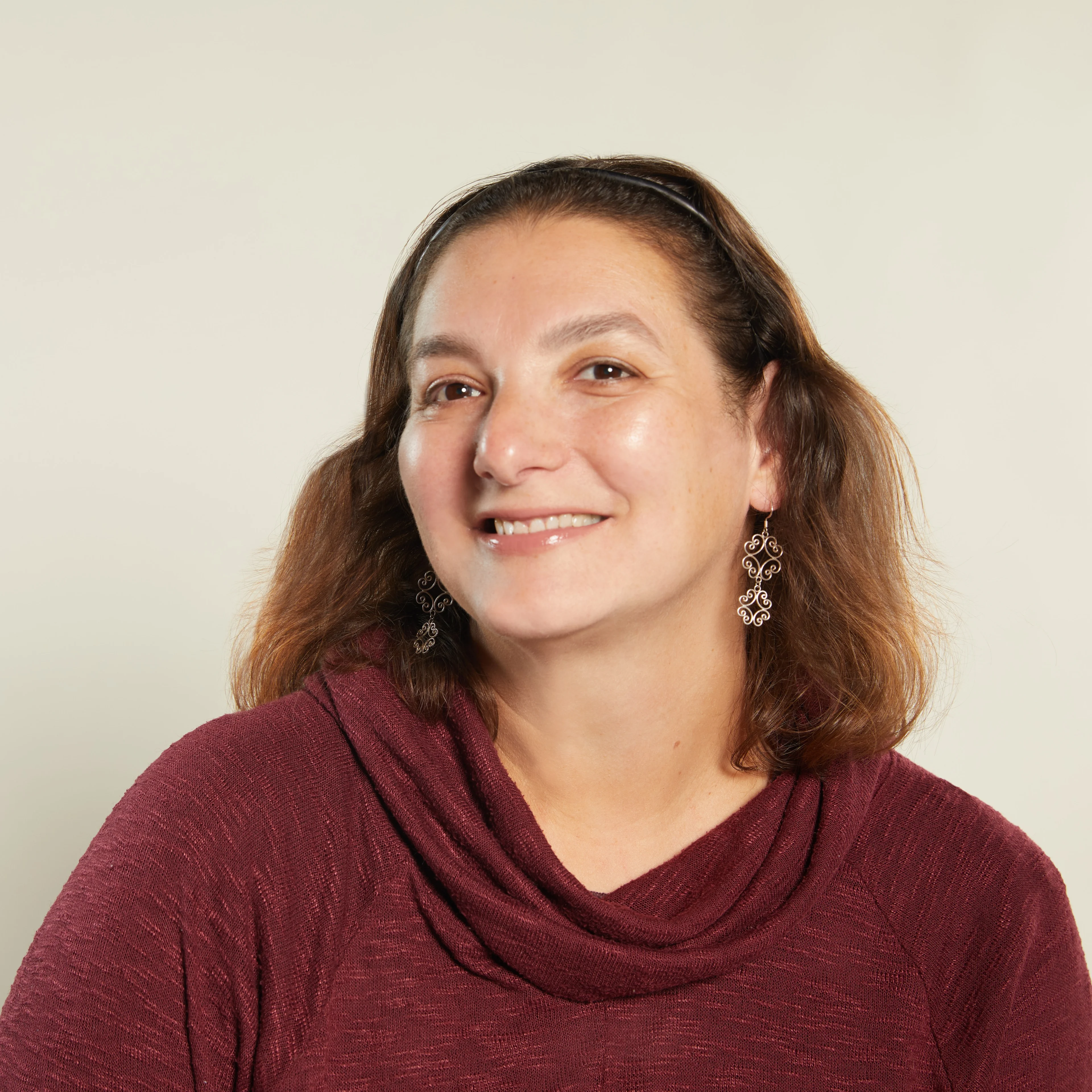
Rachel Bozek
is co-host of the “In It” podcast and the parent of two kids with ADHD. She has a background in writing and editing content for kids and parents.
Latest episodes
April 25, 2024
Learn about common reasons families might look for a special education attorney and what their other options are.
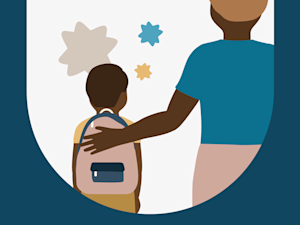
April 11, 2024
Learn ways to advocate for your child at school while maintaining a good relationship with their teachers.

March 28, 2024
The track and field gold medalist shares her story and talks about ADHD, dyslexia, and building confidence.

March 14, 2024
The hosts interview kids’ book author Lindsey Rowe Parker. She talks about her new picture book about sensory differences in kids.
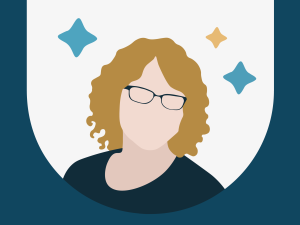
February 29, 2024
Understanding what a language disorder means for your child can be overwhelming. Here’s help from an expert.
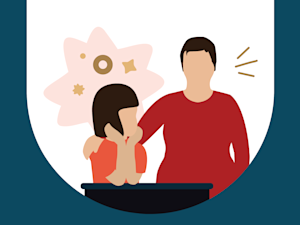
February 15, 2024
Talking with your child about their diagnosis of a learning and thinking difference can be tough. Get advice from an expert.
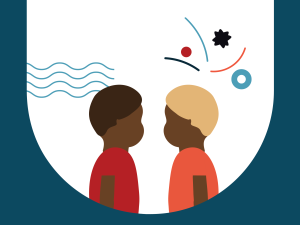
February 1, 2024
How can you manage the challenges of having one child who learns and thinks differently and one child who doesn’t? Get advice from an expert.
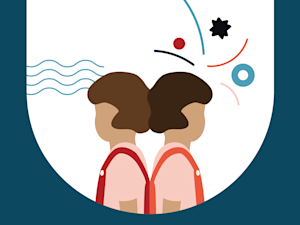
January 18, 2024
Any sibling relationship can be hard to manage. But what happens when one of the siblings has a learning or thinking difference? Here’s one mom’s story.

January 4, 2024
Overwhelmed by talking with your child’s pediatrician about ADHD or learning differences? These tips can help.
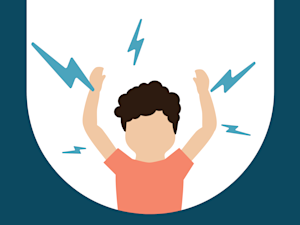
December 14, 2023
Tantrums and meltdowns are challenges all parents face. Get tips for projecting calm when kids and teens have tantrums.
